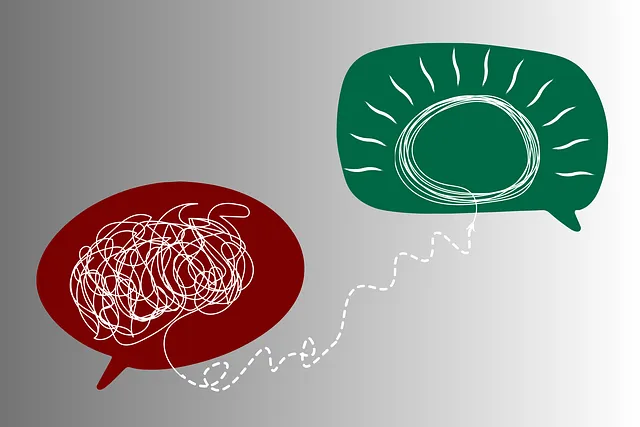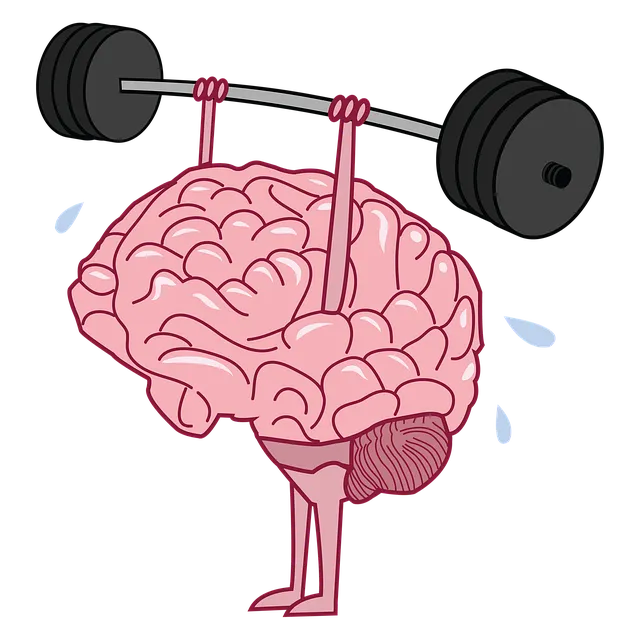Kaiser Permanente's Therapy Services in Aurora offer top-tier mental wellness care through evidence-based practices, Compassion Cultivation, and Mindfulness Meditation. Their evaluation process goes beyond satisfaction surveys, assessing participant experiences, symptom changes, and overall well-being improvements using qualitative interviews, quantitative data, and outcome measures. This commitment to emotional healing and culturally sensitive practices creates safe spaces for diverse populations. Thorough evaluations enhance program quality, improve care, and ensure patients receive tailored, high-quality mental health support, addressing the question: does Kaiser have good therapists in Aurora? Regular feedback loops enable continuous improvement, incorporating participant input to adapt services and strengthen the therapeutic alliance for better mental wellness outcomes.
“Uncovering Effective Mental Wellness Programs: An Evaluation Journey. This article explores crucial methods to assess and improve mental health services, particularly focusing on Kaiser Permanente’s Therapy Services in Aurora. We delve into techniques that gauge therapist quality and patient satisfaction, highlighting the importance of both. Additionally, we examine metrics for program effectiveness and emphasize continuous improvement through feedback loops. Discovering how organizations like Kaiser ensure ‘good therapists’ in Aurora is essential for enhancing mental wellness outcomes.”
- Understanding Mental Wellness Program Evaluation
- Kaiser Permanente's Therapy Services in Aurora: An Overview
- Techniques for Assessing Therapist Quality and Patient Satisfaction
- Metrics for Measuring the Effectiveness of Mental Health Programs
- Continuous Improvement: Using Feedback Loops to Enhance Services
Understanding Mental Wellness Program Evaluation

Mental wellness program evaluation is a multifaceted process that goes beyond mere satisfaction surveys. It involves assessing the effectiveness and impact of interventions aimed at improving mental health outcomes. This includes examining participant experiences, changes in symptoms, and improvements in overall well-being. By employing various methods such as qualitative interviews, quantitative data analysis, and outcome measures, programs can gain valuable insights into what works, for whom, and under what circumstances.
At Kaiser in Aurora, the evaluation of mental wellness programs underscores a commitment to Emotional Healing Processes and Mind Over Matter Principles. Culturally sensitive practices are integral to this process, ensuring that interventions resonate with diverse populations. By integrating these principles, Kaiser aims to create safe and supportive spaces where individuals can heal and thrive. Thus, thorough evaluations not only contribute to program improvement but also enhance the quality of care, ultimately benefitting those seeking mental health support in the Aurora community.
Kaiser Permanente's Therapy Services in Aurora: An Overview

Kaiser Permanente’s Therapy Services in Aurora offer a comprehensive mental wellness program, renowned for its high-quality care. The organization prides itself on having a diverse team of licensed therapists who employ evidence-based practices to address various mental health concerns. One notable approach is their integration of Compassion Cultivation Practices and Mindfulness Meditation techniques into treatment plans, fostering a supportive environment that enhances patients’ well-being.
These services cater to individuals across different age groups and backgrounds, ensuring accessibility within the community. By combining clinical expertise with innovative therapeutic methods, Kaiser Permanente aims to improve mental health outcomes, making it a trusted choice for those seeking effective therapy in Aurora. Their commitment extends beyond treatment; they also advocate for Mental Health Policy Analysis and Advocacy, working towards creating a more supportive societal environment for mental wellness.
Techniques for Assessing Therapist Quality and Patient Satisfaction

Evaluating therapist quality and patient satisfaction is a multifaceted process, crucial for understanding the effectiveness of mental wellness programs, especially at institutions like Kaiser in Aurora. One technique involves structured interviews or surveys that tap into both subjective and objective measures. These tools can assess the therapeutic alliance, a strong relationship between therapist and patient, which significantly predicts treatment outcome. By probing patients about their interactions, communication styles, and perceived support, valuable insights are gained into therapist quality.
Furthermore, measuring patient satisfaction often incorporates metrics on treatment effectiveness, accessibility of services, and overall care experience. In the context of Kaiser Aurora, this might include gauging how well therapists adhere to evidence-based practices, incorporate Mind Over Matter principles, or foster inner strength development, all of which are key components in Burnout Prevention strategies. These evaluations not only help identify areas for improvement but also ensure that patients receive high-quality care tailored to their needs.
Metrics for Measuring the Effectiveness of Mental Health Programs

Evaluating the effectiveness of mental wellness programs is paramount to understanding their impact and identifying areas for improvement. Metrics play a crucial role in measuring success, ensuring that resources are allocated efficiently, and demonstrating the program’s value. Key performance indicators (KPIs) should align with the program’s objectives, focusing on both short-term outcomes and long-term sustainability.
For mental health programs, these metrics could include participant satisfaction scores, reduction in symptom severity, improved coping mechanisms, enhanced social support networks, and increased employment rates. Specifically, at Kaiser, Aurora’s therapists aim to foster Mental Health Awareness by tracking client progress through structured assessments, regular feedback sessions, and qualitative data from exit interviews. Additionally, evaluating Burnout Prevention Strategies for Healthcare Providers is essential, as it contributes to the overall well-being of the team and indirectly influences patient outcomes. Empathy Building Strategies, a core component of effective therapy, can be assessed through role-play exercises, client feedback on therapist empathic responses, and observation of non-verbal cues during sessions.
Continuous Improvement: Using Feedback Loops to Enhance Services

Mental wellness programs must embrace continuous improvement to truly benefit their clients, and one powerful tool for achieving this is feedback loops. By actively soliciting and integrating input from participants, these programs can identify areas for enhancement and adapt their services accordingly. The process involves a constant cycle of assessment, action, and evaluation, ensuring that the program remains effective and relevant.
For instance, Kaiser’s therapists in Aurora could leverage this method by conducting regular client surveys to gauge satisfaction levels and pinpoint specific aspects of therapy that resonate or need improvement. This data can then guide changes in treatment approaches, potentially incorporating new Mind Over Matter principles to enhance self-esteem improvement techniques. Such iterative adjustments not only elevate the quality of care but also foster a stronger therapeutic alliance, ultimately contributing to better mental wellness outcomes.
Mental wellness program evaluation is a multifaceted process that involves understanding patient satisfaction, therapist quality, and program effectiveness. By employing techniques such as feedback loops and metrics-driven assessments, organizations like Kaiser Permanente in Aurora can continuously improve their mental health services. As evidenced by the overview of Kaiser’s Therapy Services, evaluating therapists’ performance and patient experiences is crucial to ensuring high-quality care. In light of these methods, it’s clear that Kaiser does have good therapists in Aurora, as demonstrated by their commitment to continuous improvement, ultimately benefiting patients seeking mental wellness support.






